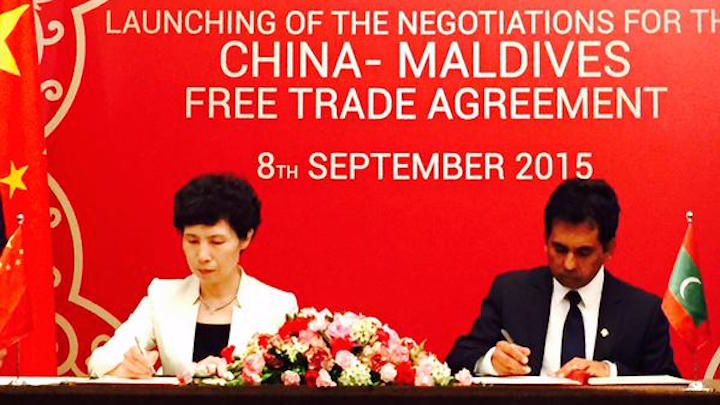Negotiations launched for China-Maldives free trade agreement
The Maldives and China signed a memorandum of understanding (MoU) today to launch negotiations to establish a free trade agreement between the countries.

09 Sep 2015, 09:00
The Maldives and China signed a memorandum of understanding (MoU) yesterday to launch negotiations to establish a free trade agreement between the countries.
In a brief statement after the signing ceremony at the Kurumba Resort, economic development minister Mohamed Saeed described the Sino-Maldives relationship as “central to the quick realisation of the broad economic vision of President Abdulla Yameen.”
Saeed announced that official negotiations to determine the terms of the free trade agreement will begin in October.
If the negotiations succeed, the agreement would become the first of its kind for the Maldives with any bilateral partner. The regional South Asian Free Trade Agreement (SAFTA) is the only free trade agreement the Maldives has signed.
Become a member
Get full access to our archive and personalise your experience.
Already a member?
Discussion
No comments yet. Be the first to share your thoughts!
No comments yet. Be the first to join the conversation!
Join the Conversation
Sign in to share your thoughts under an alias and take part in the discussion. Independent journalism thrives on open, respectful debate — your voice matters.




